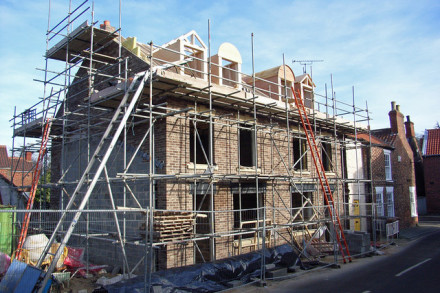
Rachel Reeves’ speech yesterday was bold and astute in making the case that the UK’s ever-increasing welfare bill is a result not of unemployment but of rising housing costs. In doing so, she went right to the heart of the UK’s housing crisis and the deep array of problems that stem from our failure to build homes.
What politicians from all parties must recognise is that no government will be able to seriously reduce spending on housing benefit without an ambitious programme of house-building. That the UK’s housing benefit budget is set to double by 2019 is a direct result of two factors: a dearth of new affordable homes combined with the mass sell-off of council houses under Thatcher’s Right to Buy scheme. The consequence is an affordable housing shortage that has forced millions of Brits into the suffocating grip of the private rented sector. As demand rages and house-building remains stagnant, private rents have rocketed. As a result, so too has the housing benefit budget.
Yet instead of investing in new homes, the Coalition has presided over the lowest level of house-building since the 1920s. Faced, as a result, with a mounting housing benefit bill, its desperate attempts to cut costs have seen it resort to the crude, cruel measure of the bedroom tax. This shifts the responsibility for the housing crisis away from the successive governments that have allowed the problem to spiral and instead lays it firmly at the doors of low-income families. While penalising some of the most vulnerable people in the country, the bedroom tax does nothing to address the underlying issue of housing supply. And it is not even economically effective – the Government estimates that the measure will cut the housing benefit bill by just 2%.
But the real scandal here is where housing benefit payments are going. Unbelievably, our failed system means the state gives billions of pounds a year in housing benefit payments straight to private landlords. In fact, 39% of the total housing benefit bill last year went to tenants in the private rented sector. That is a staggering £9.3 billion subsidy given by taxpayers to a small and mainly wealthy group of private landlords. These payments don’t go in to the coffers of local authorities or the developers building new homes – they go into private bank accounts where they fund exotic holidays and luxury properties in the Home Counties.
There is clearly an alternative. The £24 billion that the UK currently spends on housing benefit would be enough to build nearly 200,000 affordable homes. That is not enough, but it would be a significant improvement on the mere 43,000 built last year. Investment in housing would reduce the demand for housing benefit and lead to a drop in welfare spending. The wider economic benefits are also huge. Every £1 of investment in construction generates £2.84 in the wider economy, while every new home creates 2.3 jobs. Instead of subsidising landlords lucky enough to own a second, third or hundredth home, we should be fixing the problem that leads to millions being unable to even afford their first one.
The bottom line is that we cannot tackle the housing benefit bill without tackling the housing crisis. Instead of tinkering around the edges while continuing to give multi-billion pound subsidies to private landlords, the government should back Labour’s calls for a bold and extensive house-building programme of the kind not seen since the post-war years. The key to reducing our welfare bill is to get Britain building.




More from LabourList
‘Turning public services around: Haringey’s story of child protection’
‘Can Labour turn the green tide back to red?’
Tom Belger column: ‘Why is Labour making migrant exploitation easier?’